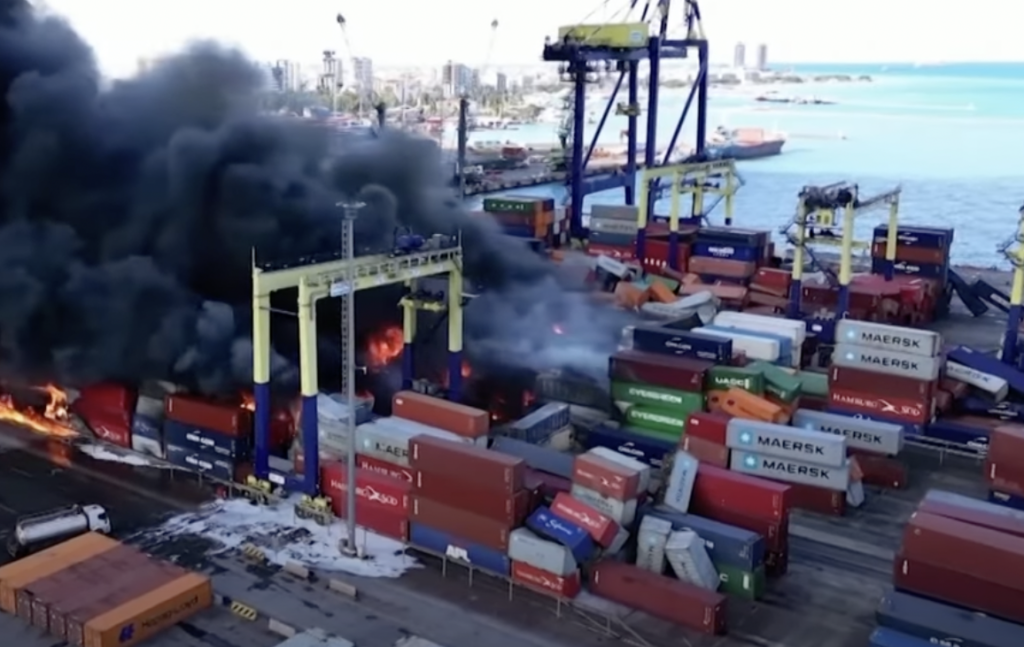Turkish ports halt operations following earthquake

From a raging fire at the port of Iskenderun to inspections on oil pipelines at the port of Ceyhan, and precautionary inspections at Mersin International Ports, many Turkish ports were forced to halt operations after a 7.8 earthquake struck the southeastern region of the country early Monday morning.
The death toll has already surpassed 11,200 in Syria and Turkey, and thousands more remain disappeared under the rubble of collapsed buildings.
With ports out of action, ships have been forced to divert and carriers are no longer taking any new bookings to and from closed ports. This has forced companies like Maersk to develop contingency plans to nearby hubs.
Even though Turkey’s main exports are cars, tractors, and trucks, in the first nine months of 2022, the country's fruit and vegetable exports amounted to $1.94 billion.
Regarding the fire at Port of Iskenderun, Danish carrier, Maersk put out a statement on Feb. 7, indicating that: “It’s not yet known how long recovery efforts will take and when the port can undergo a full inspection of the damage, but we will keep you informed as soon as we hear the latest developments.”
Even though the fire has been put out at Iskenderun, it is not clear when operations will resume, for now, carriers must work on alternative transport plans.
The latest information released by Maersk indicated that: “We will unfortunately not be able to deliver cargo currently on the water bound for the Port of Iskenderun. We will instead be holding containers in nearby ports and hubs for three weeks from today (Wednesday 8 February) at no extra cost while we plan the next steps and final deliveries.”
“Alternatively, we can deliver cargo to any Turkish port within operational feasibility and capacity constraints. This will be a free Change of Destination (COD) arrangement, including re-stowage, operational and admin fees,” they added.
For further information, the company encourages customers to reach out to their customer service agent.














































